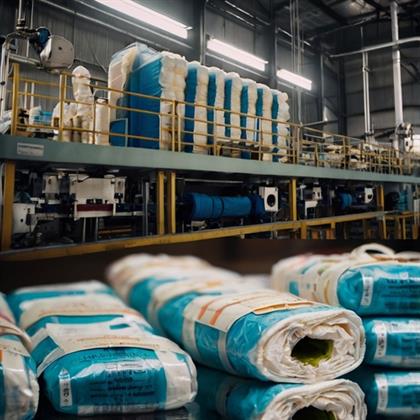
The Smart Sensor Market is projected to experience robust growth by 2031, fueled by increasing demand across sectors such as healthcare, automotive, and industrial automation. As industries continue to digitalize, the role of smart sensors in providing real-time data and enhancing decision-making processes is becoming critical.
Market Drivers
One of the core drivers of the smart sensor market is the increasing integration of the Internet of Things (IoT). IoT technology relies heavily on smart sensors to collect and transmit data from connected devices. These sensors act as the backbone of IoT systems, gathering information on various environmental and operational factors. This data is then processed and used to optimize processes, reduce inefficiencies, and enhance productivity.
In addition to IoT, the automotive sector is a significant contributor to the growing demand for smart sensors. With the rise of electric and autonomous vehicles, sensors are crucial for functions such as vehicle control, safety monitoring, and navigation. For example, advanced driver-assistance systems (ADAS) use sensors to detect obstacles, monitor road conditions, and prevent collisions, making vehicles safer and more reliable.
Technological Innovations
Advancements in sensor technology are also driving the market forward. Innovations in nanotechnology, wireless communication, and AI are enabling the development of smarter, more efficient sensors. These advancements are resulting in sensors that are smaller, faster, and more accurate, expanding their application potential.
Energy efficiency is another area of innovation. Smart sensors with low power consumption are becoming essential, particularly in remote or hard-to-reach areas where frequent battery changes are impractical. Energy harvesting technology, which allows sensors to generate power from their environment, is expected to further boost market growth in the coming years.
Applications Across Sectors
Smart sensors have a wide range of applications across various industries:
- Healthcare: In the healthcare industry, wearable devices equipped with smart sensors are being used to monitor patient health in real time. These devices collect data on vital signs and physical activity, allowing healthcare providers to offer more personalized care. Furthermore, sensors are enabling remote patient monitoring, reducing the need for hospital visits.
- Industrial Automation: In manufacturing, smart sensors are a key component of Industry 4.0. They are used to monitor machinery, detect faults, and optimize production processes. With predictive maintenance enabled by smart sensors, manufacturers can prevent costly equipment failures and extend the lifespan of machinery.
- Agriculture: In agriculture, smart sensors are being used to improve crop yields through precision farming. By monitoring soil conditions, weather patterns, and crop health, farmers can make more informed decisions about irrigation and fertilization, resulting in more sustainable farming practices.
Challenges and Future Prospects
While the smart sensor market holds immense potential, several challenges could hinder its growth. High development costs and the need for advanced infrastructure are significant barriers for small and medium-sized enterprises. Moreover, concerns over data privacy and security remain critical, as more sensitive data is collected by sensors.
Looking forward, the smart sensor market is expected to overcome these challenges with ongoing advancements in AI and machine learning. These technologies will enable more sophisticated data analysis, providing industries with deeper insights and enhancing operational efficiency.
In conclusion, the smart sensor market is set to become a cornerstone of the digital transformation across industries. By 2031, the combination of IoT, AI, and advanced sensor technology will revolutionize how industries operate, bringing about new opportunities for innovation and efficiency.
You Might Like Also

Forecasting the Future of the Adult Diaper Market 2031

The Future of Advertising: In-Game Advertising Market 2031

The Future of the Wireless Charging Market by 2031

The Future of the Portable Generator Market 2031
















